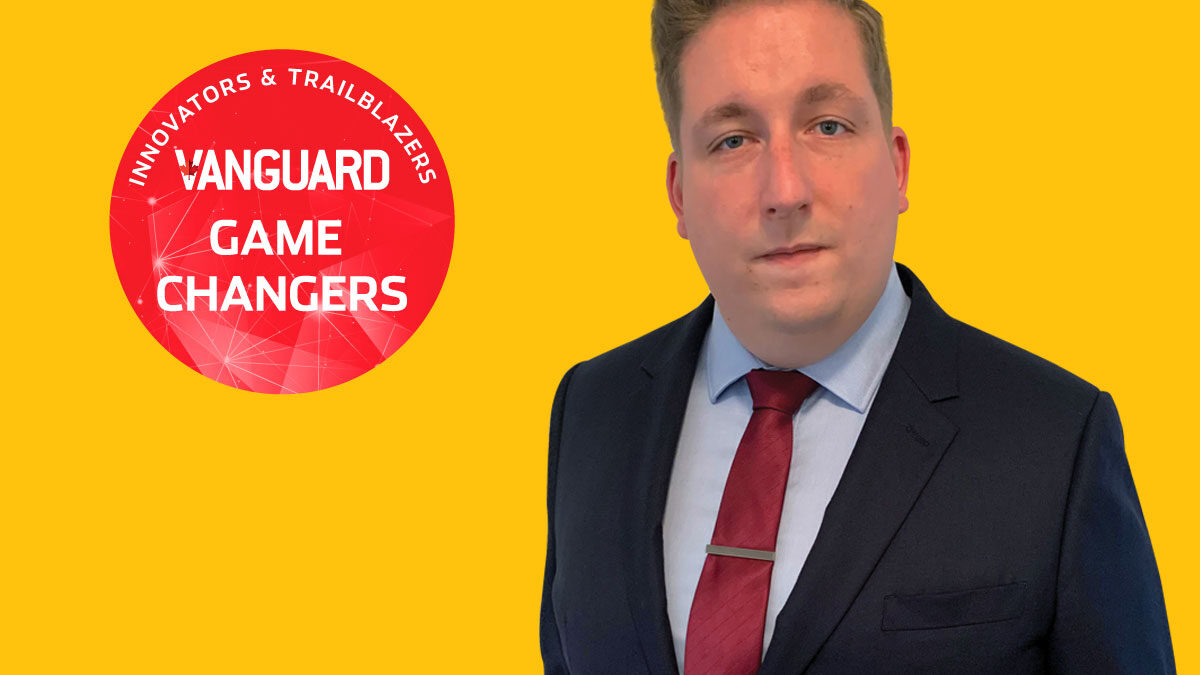Jozsef Hamari’s work in artificial intelligence started in the remote forests of Western Canada. “We were working to solve challenges we thought were unique to the forest industry – detecting, identifying, mapping, and measuring trees and logging operations from airborne sensors,” said Hamari. They were making artificial intelligence solutions that would work no matter how remote and rugged the environment. It didn’t take long for them to realize that if they could identify and map 50,000 young trees from the air, they could certainly identify and track a few dozen vehicles rolling down a street.
Today, Hamari is the Chief Technology Officer of TerraSense Analytics. His primary role is to support their teams of extremely talented developers. “We set out to create lasting artificial intelligence solutions that actually function in the real world, not just flashy research,” he said. “It is my job to identify and double down on the technologies that will help us create these products.”
He is still writing code as part of the team, especially when it comes to data fusion. Due to his work in the AI field, Jozsef Hamari was selected as Vanguard Game Changer for the Aug/Sep 2020 issue.
What was your most challenging moment?
Entering the defence industry as a startup tech firm in Western Canada was a daunting challenge. The incumbents were powerful and had very capable development divisions, but we knew we had the skills, the team, the technology, and the partners to deliver. The Innovation for Defence Excellence and Security (IDEaS) program provided us the opportunity to prove ourselves and enter the market running.
What was your a-ha moment or epiphany?
The high-tech industry has always been littered with fads, but the field of artificial intelligence is even more so. If we want to get through to the pragmatic majority of users, we need to cut through the hype; artificial intelligence is not a feature, it’s a means to an end.
What is the one thing that has you most fired up today?
We’re working in close collaboration with our hardware partners to build the smallest, most powerful avionics-grade AI computer we’ve ever put on board an aircraft. That’s exciting!
What is the best advice you received?
As a Canadian startup in competition with industry giants and Silicon Valley talent, we should emphasize what makes us uniquely Canadian. We build datasets, algorithms, and products that work in the most remote, rugged, and northern reaches of Canada, capable of operating in the cold, the snow, and the ice. Oddly enough, this advice was from a US Air Force officer.
What is a habit that contributes to your success?
I never book meetings on a Friday. This is a day when I can sit down quietly in my home office and work free from distractions and interruptions.
What people or organizations do you believe best embody the innovation mindset?
The select few individuals and organizations that work to break the barriers between academia and industry will be pivotal to the growth of Canadian innovation. We’ve had the privilege of working together with truly innovative thinkers at the University of British Columbia and have gained a powerful competitive advantage as a direct result of working with such people.
How is your organization changing the game within your industry sector?
TerraSense Analytics is disrupting the intelligence, surveillance, and reconnaissance domain by bringing artificial intelligence and deep learning to a field in which an increasing number of sensors is overwhelming the human ability to keep pace.
What are some of the biggest impediments to innovation in your industry sector?
Technology firms entering the defence & security space for the first time are often overwhelmed by how different the market is from the high-tech space. Building a strong network of highly experienced individuals and partner organizations is critical for growth in this sector.
How has innovation become engrained in your organization’s culture and how is it being optimized?
Small multidisciplinary teams without organizational impediments are absolutely vital to innovation. We pair our teams with a strong product manager and foster an agile organization that allows us to quickly respond to customer feedback and changes in the marketplace.
What technologies, business models, and trends will drive the biggest changes in your industry over the next two years?
We are very lucky to be at the confluence of several key technologies: small but powerful processors for AI-driven by the autonomous car industry, high-speed networking powered by new satellite constellations and 5G mobility, and an explosion in the quantity and quality of sensors equipped on anything that moves. TerraSense Analytics is working hard to bridge these technologies using artificial intelligence, fusing information from a wealth of sensors to create a common operating picture.
What is your parting piece of advice?
Look North! The ecosystem of Canadian defence & security tech is growing, networking, and becoming truly competitive in the global market.

